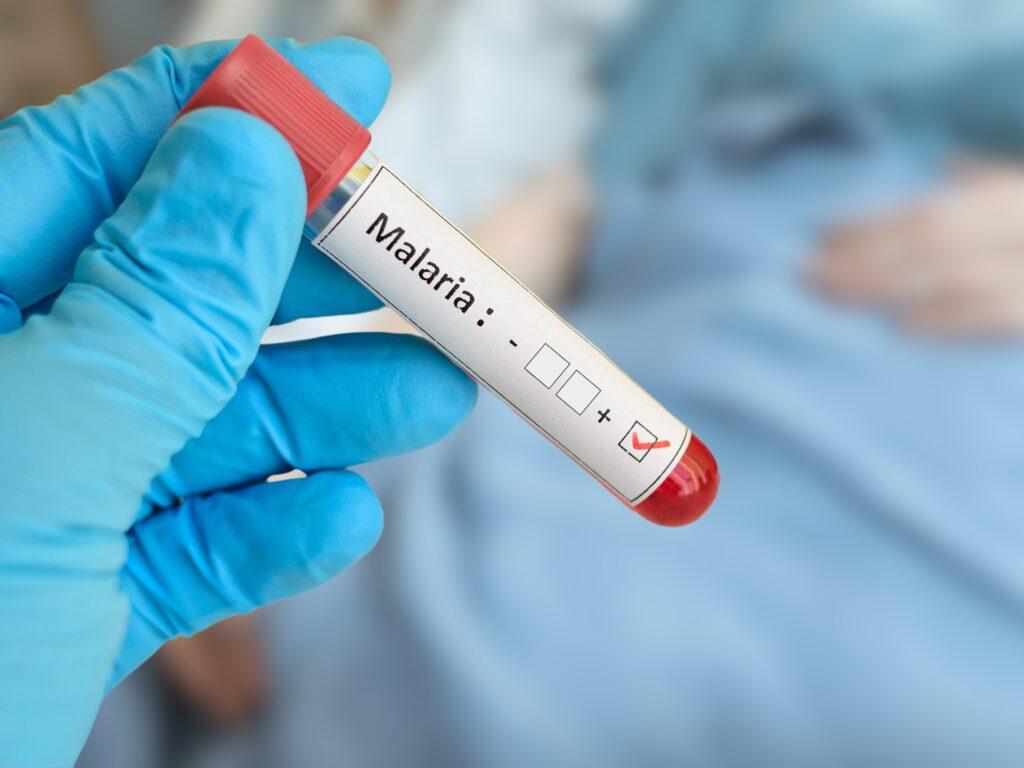The first malaria treatment specifically designed for infants has been officially approved for use.
The drug, branded Coartem (artemether-lumefantrine) Baby, was approved by Switzerland’s health authority, Swissmedic.
Until now, there was no approved malaria treatment for infants weighing less than 4.5 kg. These newborns — among the most vulnerable due to their immature immune systems — were often treated with drugs intended for older children or adults. These adult-based therapies required dose adjustments that were often imprecise, increasing the risk of under- or overdosing and adverse effects.
Additionally, malaria vaccines are not currently approved for use in young infants.
The newly approved treatment offers an accurate, infant-specific dose that addresses these long-standing concerns.
Coartem Baby is approved for infants who weigh between 2 and 5 kg (4.4 and 11 lb) infected with malaria.
The treatment was developed by Novartis in partnership with Swiss nonprofit Coartem Medicines for Malaria Venture (MMV), and as part of the PAMAfrica consortium, which is co-funded by the European & Developing Countries Clinical Trials Partnership and the Swedish International Development Cooperation Agency.
The approval is especially significant considering that infants under the age of five account for the majority of malaria-related deaths globally.
XTALKS WEBINAR: Oral Dosage Innovation for Pediatric Drug Delivery
Live and On-Demand: Thursday, August 7, 2025, at 11am EDT (5pm CEST/EU-Central)
Register for this free webinar to gain a behind-the-scenes perspective on developing oral dosage forms for pediatric populations.
According to Novartis, each year, approximately 30 million babies are born in malaria-endemic regions of Africa.
According to a recent WHO report, there were 263 million malaria cases in 2023, resulting in 597,000 deaths, with nearly all occurring in Africa. Children under the age of five accounted for 76% of these fatalities.
A large survey conducted across West Africa found infection rates among infants under six months of age ranged from 3.4% to 18.4%. However, data on malaria in this age group remains scarce, as newborns and young infants are rarely included in clinical trials evaluating antimalarial treatments.
The approval covers a new formulation of Coartem, which is also marketed as Riamet in some countries. Novartis originally launched the treatment in 1999 and received FDA approval for it in 2009.
The drug combines the antimalarial agents artemether and lumefantrine. This infant-specific version, known as Coartem Baby, is a dissolvable formulation that can be mixed with breast milk and features a sweet cherry flavor.
Coartem Baby’s approval was based on positive results from the Phase II/III CALINA study, which evaluated a new ratio and dose of the treatment to account for metabolic differences in babies under 5 kg, said Novartis.
Several countries participated in the assessment and are expected to endorse the treatment, including Burkina Faso, Cote d’Ivoire, Kenya, Malawi, Mozambique, Nigeria, Tanzania and Uganda.
Related: Merck’s Enflonsia Gets FDA Nod for Infant RSV Protection to Rival Sanofi and AstraZeneca’s Beyfortus
“For more than three decades, we have stayed the course in the fight against malaria, working relentlessly to deliver scientific breakthroughs where they are needed most,” said Novartis CEO Vas Narasimhan, in the company’s news release. “Together with our partners, we are proud to have gone further to develop the first clinically proven malaria treatment for newborns and young babies, ensuring even the smallest and most vulnerable can finally receive the care they deserve.”
“Malaria is one of the world’s deadliest diseases, particularly among children. But with the right resources and focus, it can be eliminated,” said Martin Fitchet, CEO of MMV. “The approval of Coartem Baby provides a necessary medicine with an optimized dose to treat an otherwise neglected group of patients and offers a valuable addition to the antimalarial toolbox.”
However, while the approval is a major step forward, several challenges remain, including manufacturing and distributing the new drug to remote and resource-limited regions.
To address access issues, Novartis said it plans to make Coartem Baby available on a “largely not-for-profit basis to increase access in areas where malaria is endemic.”
Novartis has four next-generation malaria treatments in its pipeline, one of which is currently in a Phase III trial, aimed at addressing growing resistance to current therapies.
Novartis has nearly doubled its R&D investment in the Neglected Tropical Diseases (NTDs) field in recent years, advancing a portfolio of 10 new treatments, despite most other major pharma companies backing away from the field. Since 2021, the company has invested almost $490 million in funding for global health R&D.
Novartis is also actively developing therapies for diseases such as dengue fever, Chagas disease, leishmaniasis and cryptosporidiosis.
If you want to have your organization featured on Xtalks, please email Ayesha Rashid at: [email protected]












Join or login to leave a comment
JOIN LOGIN